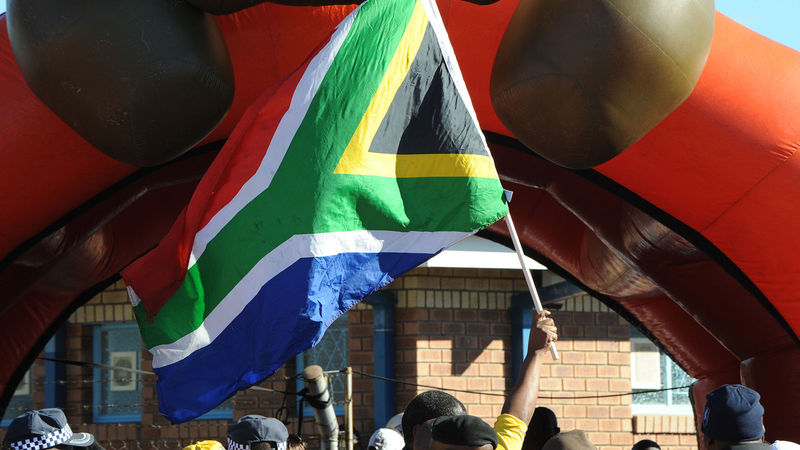A man was shot and killed inside Wynberg magistrate’s court recently. He was a taxi driver appearing on charges of murder. A life ended inside a building meant to represent law, order and justice. On the eve of Freedom Day, the symbolism is chilling.
We are a country caught in between. Not yet what we hoped to become. No longer who we once were. As Victor Turner, author of The Ritual Process: Structure and Anti-Structure, suggests we are living in a liminal space “betwixt and between” where identity, morality and meaning are blurred.
The murder at Wynberg court is not an isolated tragedy. It is part of a pattern of violence that is becoming banal. It mirrors the unchecked rise in gender-based violence. It echoes in the divisive speech of public figures from Economic Freedom Fighters leader Julius Malema’s defiant provocations to AfriForum’s nostalgic nationalism. Our politics are less about building bridges and more about burning them.
Freedom Day should prompt us to ask difficult questions, not repeat comfortable slogans.
- Are we truly free when safety is a privilege, not a right?
- Can we celebrate freedom while fear stalks courtrooms and classrooms alike?
The promise of freedom has always been about more than the vote. It was about dignity. Opportunity. Care. Moral maturity is not only about justice but about our responsibility to one another. And yet, across government, business and civil society, we are seeing a retreat into self-interest.
Political leaders who once embraced reconciliation now traffic in division. The government of national unity, hailed as a post-election compromise, already appears fragile, more coalition than conviction. The erosion of political goodwill is not just bad optics; it signals a breakdown of shared purpose.
What future are we preparing for our children?
Our education system is not producing the critical thinkers this moment demands. We teach compliance, not courage. Rote repetition, not reflection. How can our youth lead tomorrow if they cannot question today?
More than 60% of young South Africans, individuals aged 15 to 24, are unemployed and with a broader perspective, the unemployment rate among young individuals aged 15 to 34 years has recently been reported at 45.5%. These figures underscore the significant challenges faced by South Africa’s youth in securing employment, highlighting the urgency for targeted interventions to address this pressing issue.
Economic freedom is not just delayed, it is being denied. And so, we must confront the myth that we are all equally free. The Constitution might grant rights, but rights without resources mean little.
Identity is always forged in relationship to others. Yet we live in a time where connection is weakness and division is strength. There is a growing absence of empathy in how we speak, act and govern. The care we owe each other, especially the most vulnerable, is being outsourced or ignored altogether.
We are becoming a country that sees violence as inevitable.
Corruption as normal.
Polarisation as power.
But we can choose differently.
We can reimagine freedom not as something given to us once, but something we make together daily, deliberately. That requires an ethic of care in our institutions. It requires leaders who prioritise reconciliation over retaliation. It requires all of us to resist the temptation of cynicism and speak with moral clarity.
So this Freedom Day, I ask:
- What does your freedom cost others?
- How do your actions — your silence, your choices — shape the next 30 years?
- Are we preparing our children to inherit a society of inclusion or exclusion?
Freedom is not a destination we reached in 1994. It is a road we are still building. And right now, it is full of potholes, dead ends and danger signs.
We must be bold enough to stop and ask: “Who are we becoming?”
If we are serious about freedom, we must also be serious about justice, safety, care and equity. It is time to turn inward — and outward. To rebuild the moral imagination this democracy was founded on.
Not with slogans. With action.
Dr Armand Bam is Head of Social Impact at Stellenbosch Business School.
Crédito: Link de origem


